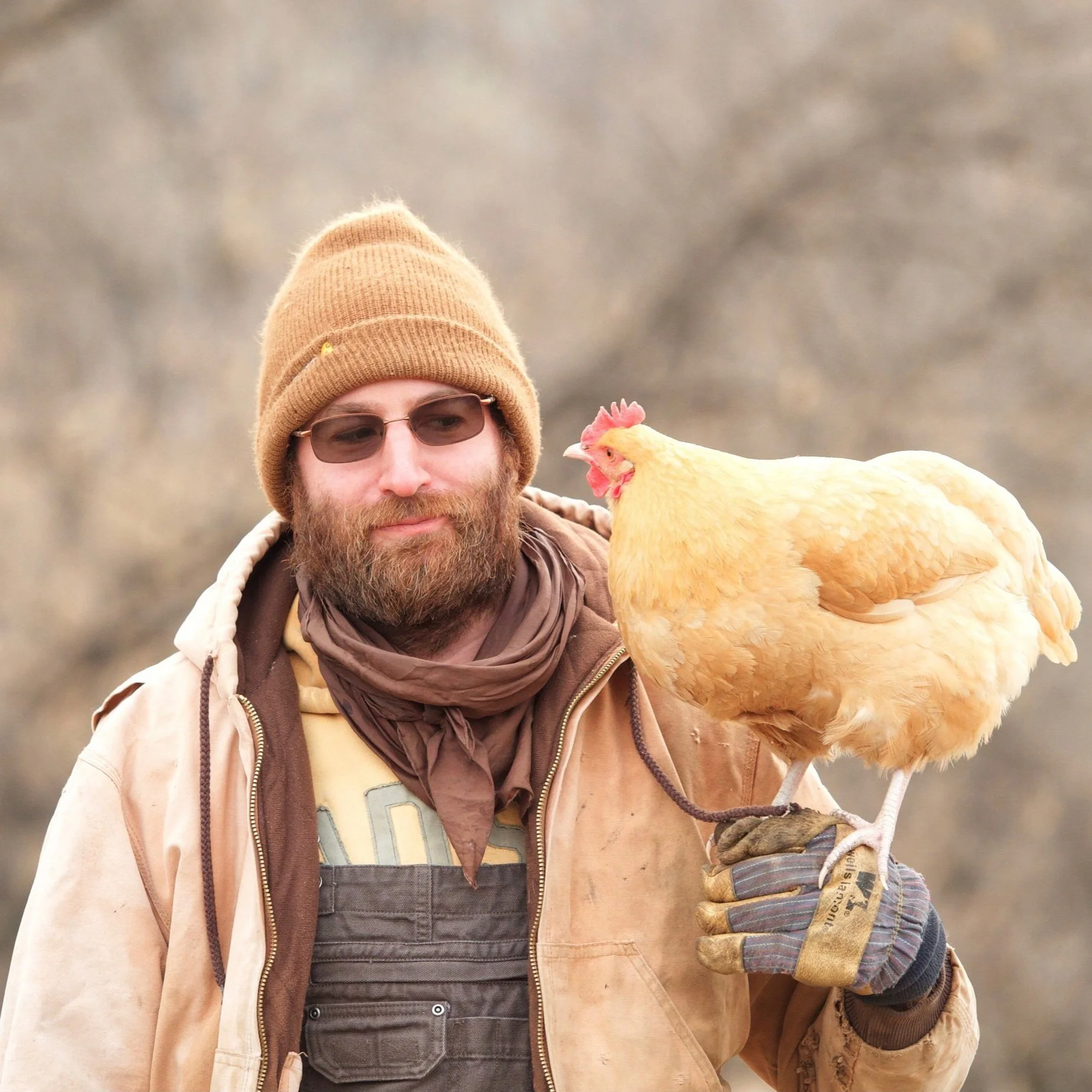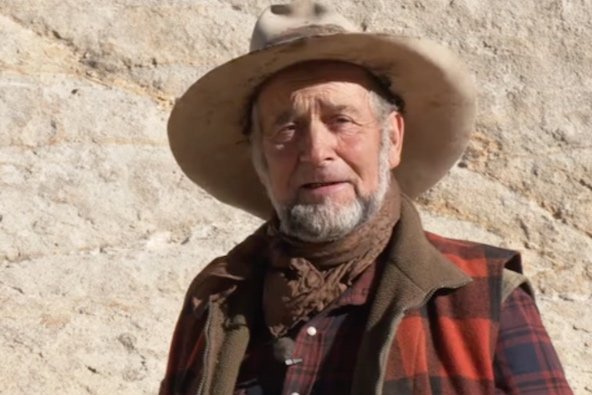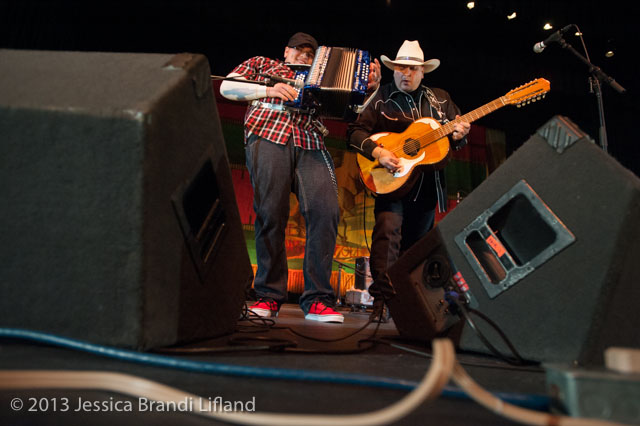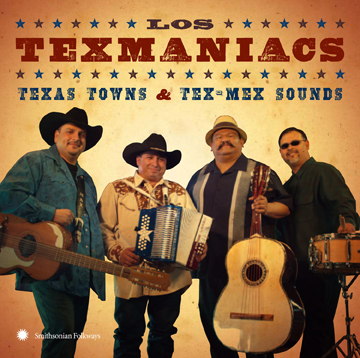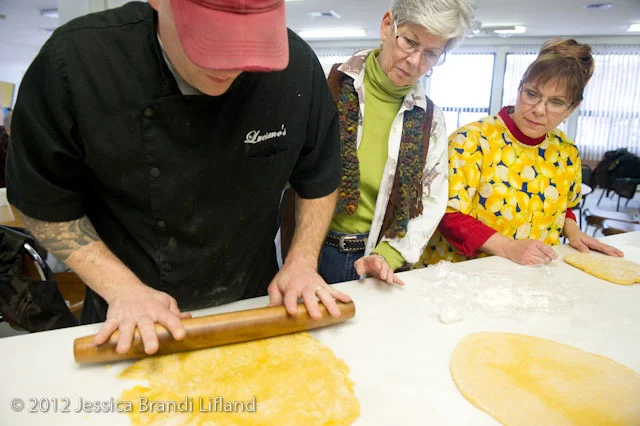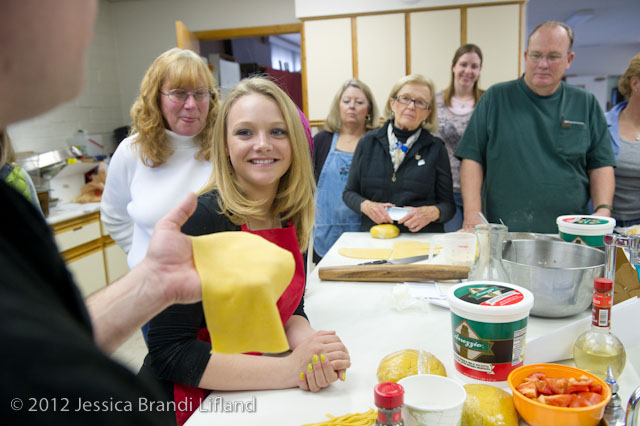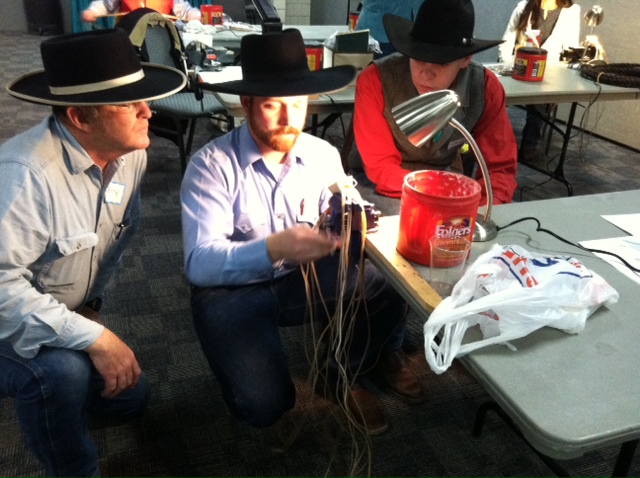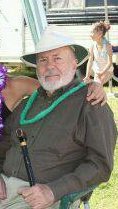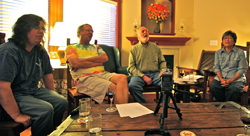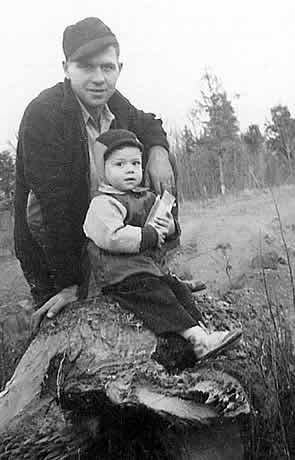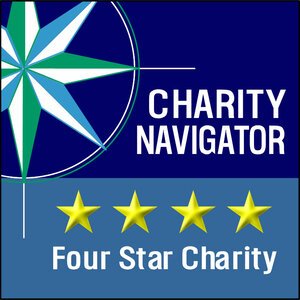PZ: I’d like to believe it’s the former. Most of the rodeo roughstock twisters who I idolized, as well as most of the writers whose work and lives I admire, dance the dance of reckless abandon. As difficult as it’s become in these conservative, theocratic cowboy-west times, I’d still like to think there’s a few kindred spirits out there in audienceville who’d rather hang with Paladin than with, say, Gene Autry. I hope that’s not an unfair metaphor—and certainly not one intended to disrespect Mr. Autry, who I watched religiously as a kid in the ‘50s. To couch it in similar terms, whoever wrote the scripts, and/or short stories or novels informing the scripts to the HBO series Deadwood, or No Country for Old Men, or The Unforgiven, or PatGarrett and Billy the Kid, or Hud, or McCabe and Mrs. Miller, or The Grey Fox, or The Last Picture Show, or Lonely Are The Brave, or Junior Bonner, or The Wild Bunch, or ( yes, damn it) Brokeback Mountain, or J.W. Coop, or RanchoDeluxe or The Missouri Breaks or…well, you get the picture—these are the writers who subscribe to the same cowboy-west sensibilities I embrace. Nothing “safe” about the wild-west characters, fictitious or not, in those stories, the key modifier here being “wild,” not “tamed” or “domesticated” or “fenced-in and broke.” I’ll take a Sam Peckinpah-directed film anyday over most any other western. And Paladin was my kind of Mafioso-hitman “cowboy poet.” In fact, Paladin had to be Italian.
DM:This book also feels like a tribute to the people in your life who have influenced you and enriched your life personally and professionally. Was that a conscious decision or did it just bubble up through the process?
PZ: A little of both. A number of years ago, in a piece I wrote for the Big Sky Journal, I took the liberty to revise that old saw, “you are what you eat,” to “you are who you meet.” I’ve been fortunate to know this truth for decades, and more fortunate yet to have met and have been befriended by hundreds of genuine-article, magnanimous beings from so many diverse species aboard this glorious orb. Both editor-friends of 51—the one who abandoned me and the one who stuck with me—admonished me for the excessive mentioning of names that would disinterest the average reader. I ignored the advice altogether. I only wish that I’d have insisted on the inclusion of several additional pages inside the back cover, upon which I could have more fully completed the list of all my soulful coaches, gurus, cheerleaders, mentors, friends—my parents, as I emphasize over and over in the book, the most soulful influences of all. Without all these “wilderness guides” through 60 years of life in this dimension, I’m little more than a 5-foot 10-inch high pile of flesh and blood and bone.
DM:This seems like the ultimate cowboy book to me. Not in its subject matter, but in its bravado, its grit and passion and brutal honesty. It’s real and it’s authentic. -- cowboy qualities that we value. You’ve already alluded to this but I think it bears repeating (I'm being redundant again, but I'm the interviewer here.). Can you elaborate?
PZ: I appreciate your vote of confidence. Unfortunately, I think both of us could name dozens of cowboy poetry and music aficionados who’d burn 51 and not because they’re in need of the BTUs, either. Thanks also for agreeing with my earlier take on “honesty.” Brutal honesty, indeed—perfect modifier, Darcy. As to this book being worthy of the trees killed to provide the paper it’s printed on, that’s the readers call, not mine, and I haven’t heard a whole lot of response since the book was released back in March. That longstanding adage or aphorism, “silence can be deafening (to a writer)” still holds true. On the flip side, I found this message on my October 19th voice mail:
“Paul, this is your old buddy that used to fix your boots, your old Packer buddy. I just finished reading one of the best books I’ve read in my life. And I want to congratulate you and thank you very much.”
I had to look at the caller I.D. to finally figure out who he was—hadn’t seen him in a long while and never knew his last name, in fact. Just Larry, who worked as a boot repairman years back at Broken Arrow Saddlery here in Great Falls. A fellow Green Bay Packer fan. I’d have never pegged him as a reader of anything other than, say, “Western Horseman Magazine.” I returned his call:
“Larry—Paul Zarzyski. Whose book did you read? I’ll pick up a copy and read it, too.”
“Yours!51,” he replied.
“How’d you find out about it? Not even the CIA knows it’s in print.”
“I saw a little mention of it in Montana Magazine,” he said. “So I drove over to Hastings, but they’d never heard of you. So I tried Barnes & Noble and sure enough, they could order it for me. They called me when it came in, but by the time I went to pick it up that afternoon, some new clerk had already sold it to another customer who spied it behind the counter, and so they had to order me another copy.”
“I didn’t figure you for a poetry fan,” I said, although I was far more curious how he rolled with the punches of the somewhat ethereal—at times, perhaps, esoteric—philosophical stances of the Self-Interview.
“Oh, yes,’ Larry responded, ‘poetry’s damn important in this world.”
I’d have bet my beloved Smith-Corona Silent-Super, my riggin’ sack, my ‘71 viper-red Monte Carlo, my vintage cowboy necktie collection—my most prized possessions—that my long-lost boot repairman friend, Larry, would not have made it through 8 of the 250+ pages of 51, let alone have read the entire book and then have responded as he so graciously did. Believe me when I tell you, Darcy, that Larry’s phone message, along with our follow-up conversation means more to me than a 5-star review in some high-falutin literary publication. What a critical reminder of the paramount importance of a single keen-hearted reader. Give me 7 more—on second thought, make it 50?—just like him and you can keep your Pulitzer Prize. Moreover, what a well-timed lesson in humility—I’m just as guilty of the sin of stereotyping others as those audience members I indicted earlier in this interview. Speaking of which, thanks (I think?) for the opportunity, the privilege, of addressing your savvy questions. But now we’ll have to close, so I can continue on my eternal journey of repentance.
Paul Zarzyski will perform in his 26th National Cowboy Poetry Gathering, January 30 to February 4, 2012. His book, 51: 30 poems, 20 Lyrics, 1 Self-Interview, is available at the Western Folklife Center Gift Shop. Paul's website is www.paulzarzyski.com.

